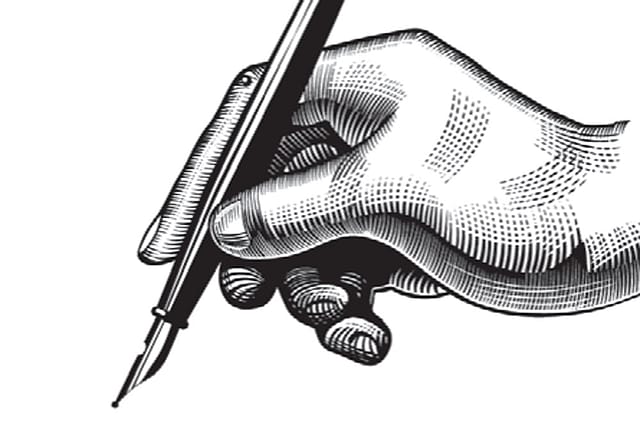US Presidential Elections

EVER SINCE America began the process of eclipsing Britain as the world's foremost democratic nation—a process that began to be formally acknowledged after the end of World War II—its presidential election has exercised a major hold on the global imagination. Both sovereign nations and global elites have carefully tracked the course of the campaign and, in the days before the advent of a multitude of opinion polls, some of questionable veracity, there was an unreal over-reliance on the media.
As a precocious and over-inquisitive schoolboy, I recall reading the small print of Time and Newsweek to gauge the American pulse from the primaries onwards during the 1968 election. The coverage those days was very extensive and obviously less partisan. For reasons that I can't entirely recall today, I decided that my preference was for Richard Nixon. On the Democratic side, I was quite fascinated by the candidature of Eugene McCarthy and Robert Kennedy.
But then, the assassin got to JFK's younger brother and McCarthy was sidelined by the powerful Democratic establishment in favour of Vice President Hubert Humphrey—an earlier version of the way Kamala Harris secured the nomination without having fought the primaries. Another candidate who fascinated me was Governor George Wallace of Alabama, the candidate representing Dixieland in the Deep South. Wallace notched 46 electoral votes and made the Nixon- Humphrey race seem closer than it really was. Wallace's running mate was one General Curtis LeMay who was prone to threatening the Vietcong with complete devastation.
I remained a Nixon supporter— despite joining in the hate-US clamour during the Bangladesh War of 1971—in the 1972 election when he faced the feeble challenge of George McGovern. He would have faced a more gripping challenge from George Wallace whose popularity had crossed the Confederate boundary, but, unfortunately, he was the target of an assassination bid and was forced to drop out of the race. Of course, Nixon wasn't popular in India, and I was the odd man out during the election.
AIming High
20 Feb 2026 - Vol 04 | Issue 59
India joins the Artificial Intelligence revolution with gusto
It was from the 1976 election, when Jimmy Carter beat President Gerald Ford, that I noticed the inclination of the Indian media and elites to support the Democratic candidate. I think this owed to the perception that Cold War calculations propelled the Republican establishment into favouring Pakistan over India.
The outcome of the 1976 election could, arguably, have been different had Ronald Reagan not been narrowly defeated in his bid for the Republican nomination. Four years later, he was a shoo-in at the primaries. Looking back, it is truly remarkable that Reagan was viewed by the liberal elites as a prize ass who would probably involve the world in a nuclear war. I observed that election from across the Atlantic in London. It is quite apparent that the mountain of prejudice that Donald Trump confronts among those with college degrees found an early reflection in the attitudes to Reagan in the 1980 election. Until late-October, the election promised to be a cliffhanger, or so the pollsters suggested. When the results started pouring in, Reagan won a landslide over the peanut farmer.
For those of us who were fans of President Reagan, there has been no candidate worth endorsing since then. Undeniably, there was a great deal of personal charisma attached to Bill Clinton and Barack Obama. However, both these stalwarts of the Democratic Party—they are still being called out to shore up the Harris campaign—had political impulses that undermined the global standing of the US. Reagan created an imperial presidency that was the envy of the democratic world. After 9/11, George W Bush—whose heart was in the right place—tried to replicate American imperial power, but it didn't quite work. The reasons may be quite complex, but I don't think today's American establishment has the same grit and determination as the one that emerged from the rigours of the Cold War.
As we enter the final weeks of the 2024 race, I can't say I am enthused by either candidate. However, if I were an American, I would probably vote to give Trump another term in the White House. The man is completely unpredictable, has little control over what he says and is backed by some frightening crazies. But his political instincts are largely in the right place. He has a sense of America's larger mission in the world which is crucial to nurture if the future of the world is not going to be handed on a platter to China. Additionally, the onslaught of woke culture must be rolled back if civilisation is to be saved. There is no chance an unthinking politician with all the wrong impulses can undertake such a project. And, finally, I quite like Trump's running mate, JD Vance.
